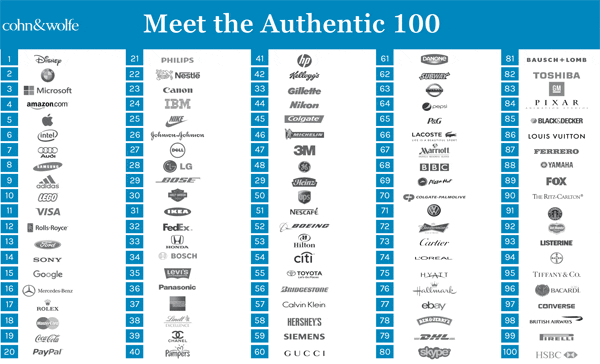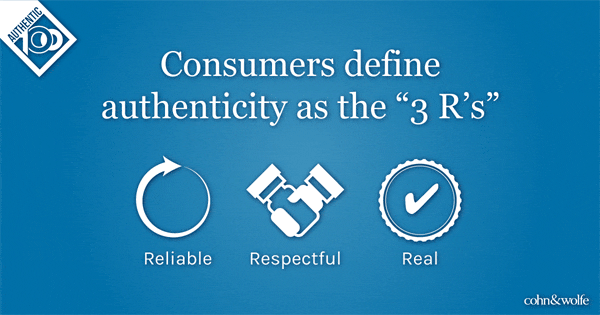 Today’s transparency means there is nowhere for brands to hide. As Andrew Escott, global practice leader, corporate at comms agency Cohn & Wolfe says: “There is no longer a way to ensure secrets stay inside a company. As a public we are now used to learning the most confidential facts about the internal practices of running a global business. Few surprises are left in terms of bad corporate governance. The public embrace whistle-blowers who may well go on to have a successful career publishing about their experience (though perhaps after a short period of incarceration). This radical transparency has picked up speed in the last decade and now frames the environment in which companies act and ultimately communicate.”
Today’s transparency means there is nowhere for brands to hide. As Andrew Escott, global practice leader, corporate at comms agency Cohn & Wolfe says: “There is no longer a way to ensure secrets stay inside a company. As a public we are now used to learning the most confidential facts about the internal practices of running a global business. Few surprises are left in terms of bad corporate governance. The public embrace whistle-blowers who may well go on to have a successful career publishing about their experience (though perhaps after a short period of incarceration). This radical transparency has picked up speed in the last decade and now frames the environment in which companies act and ultimately communicate.”
Escott says that the effect on all of us as consumers appears to be a healthy dose of scepticism. He goes on to explain how this inspired Cohn & Wolfe’s original Authentic Brands study in 2012: “Our belief back then was that an ‘authentic’ approach was perhaps the way to navigate this disbelief. Make it real and start with what the public are willing to believe, less hyperbole.”
In 2016, the company’s latest study into authenticity goes a little further and explores the individual brand behaviours that consumers associate with authenticity in companies. Escott describes that three areas stand out and only the third is the idea of “Real”: “The first two, however, are ‘Reliable’ and ‘Respectful’. In other words before you can be viewed as an authentic company you need to be delivering a high-quality product in an appropriate manner of interaction with the customer. Only after that does how you act as a company then define your authenticity.”

Escott highlights a key worry: “One stand-out finding this year was the huge concern that the public across 14 markets had about privacy and data protection. Whilst our seven Authenticity attributes were in the main fairly general, the one specific was about how companies behave on privacy and data protection. In essence, this is a privacy dilemma of how much as a company or a brand you are willing to guarantee the safety and respectful use of your customers’ data. Is any data really safe and do you want to gain reputational accolades for saying it is safe in the short term when who knows what will happen in the future? Some online retailers are extremely confident in their proprietary software, but it would seem to us a little bit of a gamble.”
Discussing how Britain is different from the rest of the world, Escott says that the UK results are perhaps the most unique in the 14-market study of 1,600 brands with 12,000 consumers: “The UK is the only top-10 list dominated by retailers and also featuring our state broadcaster.” Comparing the UK further, Escott adds: “UK consumers are aligned with Western Europe in strongly noting an authenticity deficit, but they also share the universal desire to reward brands if they were to perceive them as authentic, perhaps an eternal optimism? The biggest opportunity in defining authenticity for brands in UK is in the Real category and UK brands should therefore focus on how they manage the Authenticity attributes of ‘Communicates honestly’, ‘Is genuine and real, not artificial’ and ‘Acts with integrity’. The retail industry is defined as the most authentic and its strength is in perceptions of Respectful and Real, but individual retailers have opportunities in Reliable, ie the core product-delivery cluster.”
Describing the lessons the study offers communication practitioners, Escott says: “To us, Authenticity is not a replacement for other reputational barometers, instead we feel it offers an additional lens through which to hone or adapt your approach. We believe the journey starts with recognising the individual attributes of authenticity where your company performs most strongly and then analysing how your competitors deliver across the same attributes whether they be industry competitors or lifestyle competitors.

“All companies should consider reassessing how they discuss data and privacy protection and be very sure of how they want to commit.” Escott concludes: “It is about recognising the inherent cynicism and acting accordingly.”
Methodology
Since 2012, Cohn & Wolfe has studied authenticity as a guiding principle and business practice. Building on the past insights from the last three annual reports, the agency has compiled the Authentic 100, a list of the highest ranking brands in the world, based on consumer perception of authenticity. 12,000 consumers in 14 markets were surveyed on more than 1,600 brands. Research was conducted in Brazil, China, France, Germany, India, Indonesia, Italy, Hong Kong, Singapore, Spain, Sweden, United Arab Emirates, the United Kingdom and the United States from September through October 2015.
The study looks at the seven key attributes of authenticity, identify the global and regional brands that are most effectively achieving and seizing authenticity opportunities, and seeks to understand why some businesses and brands fail when it comes to being authentic.
For more information go to www.Authentic100.com
PRmoment Leaders
PRmoment Leaders is our new subscription-based learning programme and community, built by PRmoment specifically for the next generation of PR and communications leaders to learn, network, and lead.
PRmoment LeadersIf you enjoyed this article, sign up for free to our twice weekly editorial alert.
We have six email alerts in total - covering ESG, internal comms, PR jobs and events. Enter your email address below to find out more:








